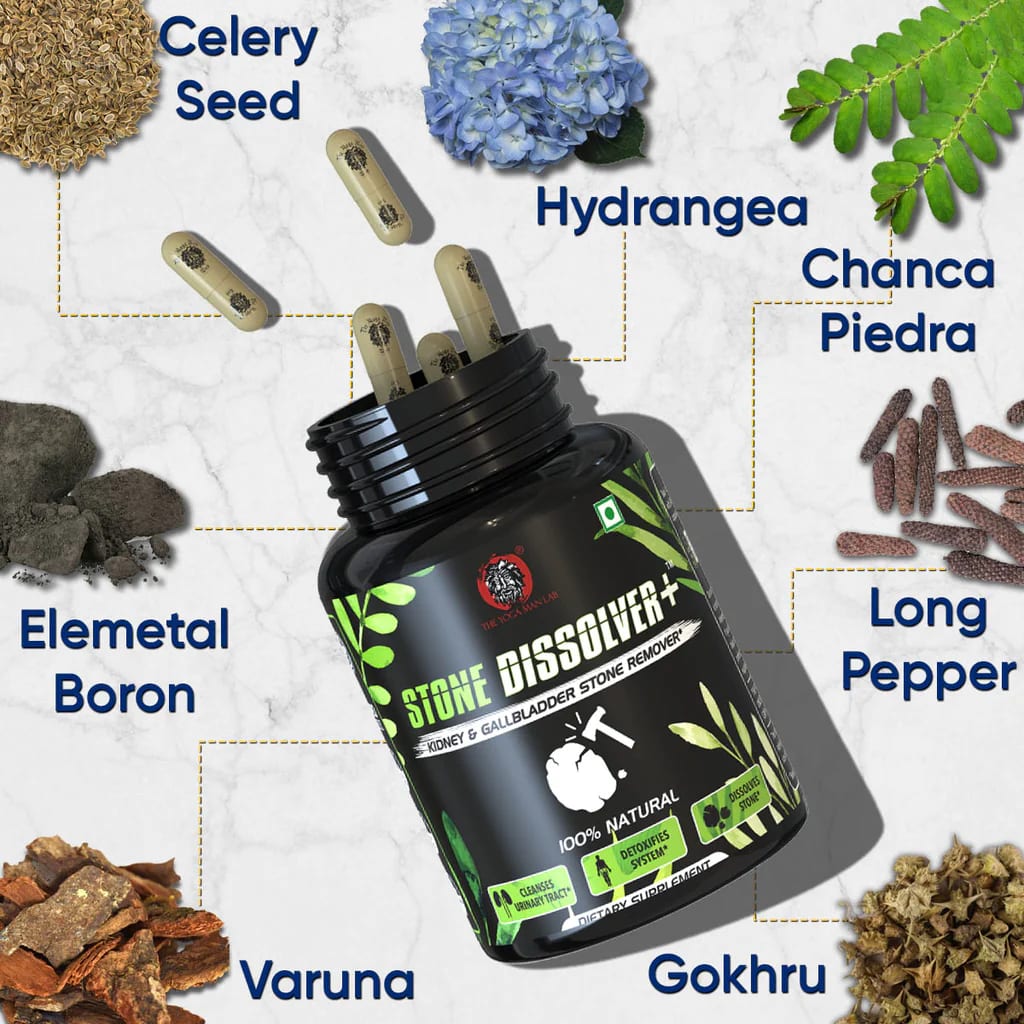
A kidney stone is a hard, crystalline mineral deposit that forms inside the kidney or urinary tract. Kidney stones can vary in size, shape, and texture, and can be composed of various substances, including calcium, oxalate, uric acid, and cystine.
Kidney stones can cause a range of symptoms, including severe pain in the side and back, lower abdomen, and groin, as well as nausea, vomiting, and difficulty urinating. In some cases, kidney stones can cause complications, such as infection, kidney damage, or blockage of the urinary tract.
Risk factors for kidney stones include dehydration, a diet high in animal protein and salt, obesity, certain medical conditions, and a family history of kidney stones. Treatment for kidney stones depends on the size, location, and composition of the stone, and may include medications, lifestyle changes, or procedures to remove the ston
Causes
There are several factors that can increase the risk of developing them. These include:
Dehydration: Not drinking enough water can lead to concentrated urine, which can contribute to the formation of kidney stones.
Diet: A diet high in animal protein, salt, and sugar, and low in fiber can increase the risk of kidney stones. Consuming too much of foods that are high in oxalate, such as spinach, chocolate, and nuts, can also contribute to the formation of kidney stones in some people.
Obesity: Being overweight or obese can increase the risk of kidney stones.
Medical conditions: Certain medical conditions, such as gout, hyperparathyroidism, and urinary tract infections, can increase the risk of kidney stones.
Family history: A family history of kidney stones may increase the risk of developing them.
Medications: Certain medications, such as diuretics, calcium-based antacids, and some antibiotics, can increase the risk of kidney stone formation.
Other factors: Other factors that may increase the risk of kidney stones include a sedentary lifestyle, frequent urinary tract infections, and certain types of bariatric surgery.
It's important to note that not everyone with these risk factors will develop kidney stones, and some people without any of these risk factors may still develop them.
Types
There are several types of kidney stones, classified based on their composition. The most common types of kidney stones are:
Calcium stones: These are the most common type of kidney stones, accounting for about 80% of cases. They are made of calcium oxalate, calcium phosphate, or a combination of both.
Uric acid stones: These stones are made of uric acid and are more common in people with a history of gout or who consume a diet high in purines.
Struvite stones: These stones are made of magnesium, ammonium, and phosphate, and are often associated with urinary tract infections.
Cystine stones: These stones are rare and are made of cystine, an amino acid that occurs naturally in the body.
Preventions
kidney stones, here are some first aid tips for managing the symptoms:
Drink plenty of water: Drinking plenty of water can help flush out the kidney stones and prevent dehydration.
Take over-the-counter pain relievers: Over-the-counter pain relievers, such as ibuprofen or acetaminophen, can help relieve pain and discomfort.
Apply heat: Applying heat, such as a heating pad or warm compress, to the affected area may help relieve pain.
Try to pass the stone: If the stone is small enough, it may pass on its own. You can try to increase your water intake and take steps to encourage the stone to pass, such as walking around or gently massaging the affected area.
Avoid certain foods and drinks: Some foods and drinks, such as caffeine, alcohol, and high-oxalate foods, can increase the risk of kidney stones. Avoiding these foods and drinks may help prevent future stones from forming.
It's important to note that if you experience severe pain, fever, or difficulty passing urine, you should seek medical attention right away, as these symptoms may indicate a more serious condition.
Buy Now...
About the Creator
TheYogaManLab
At The Yoga Man Lab, we believe in providing the best quality supplements & medicines that are made in India, 100% natural, ethically sourced






Comments
There are no comments for this story
Be the first to respond and start the conversation.